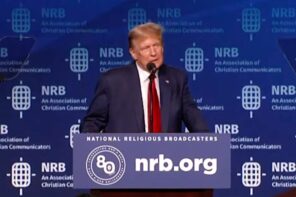Last week the Supreme Court succeeded in deciding a case that it said was too easy. The case, Holt v. Hobbs, was brought by an Arkansas inmate seeking an exemption from Arkansas Department of Correction regulations prohibiting beards, except for ¼-inch beards worn by those with diagnosed skin conditions. Gregory Houston Holt, who goes by Abdul Maalik Muhammad, claimed that although his Muslim faith required him not to trim his beard at all, he was willing to compromise at ½-inch.
“You’re really just making your case too easy,” Chief Justice Roberts told Muhammad’s lawyer at the opening of oral arguments in October 2014, just before Justice Alito proceeded to make short work of the state’s security concerns about inmates smuggling contraband under such modest facial hair or mischievously evading guard identification by shaving (especially given that the Department permits various hairstyles as well as moustaches). Justice Scalia seemed to agree, suggesting that the court dismiss the case and wait for one that presented a thicker tension between individual rights and prison security. “I don’t want to do these cases half-inch by half-inch.”
The Court found that Arkansas was imposing a “substantial burden” on the plaintiff’s “religious exercise” while failing to demonstrate that the burden was the “least restrictive means” of furthering some “compelling governmental interest,” in violation of the Religious Land Use and Institutionalized Persons Act of 2000, or RLUIPA. The decision was unanimous.
The ease of Holt may signal the solidifying of the Court’s doctrine of “religious freedom”—as noted by Kara Loewentheil here on RD—even as fundamental questions and concerns about this doctrine increasingly convulse legal scholarship and practice.
Holt, of course, comes in the wake of the Hobby Lobby decision, which extended the protections of the Religious Freedom Restoration Act (RFRA) to “closely-held” for-profit corporations. There, the Green family members, owners of Hobby Lobby, believed that “providing insurance coverage for items that risk killing an embryo” made them “complicit in the practice of abortion.”
The Court found that the choice between this complicity and paying sizable fines under the Affordable Care Act constituted a substantial burden, unperturbed by the reality that of the four methods of contraception in question, none has been shown indisputably to prevent the implantation of a fertilized egg, and two of them have been shown indisputably not to. What mattered was that the belief was sincerely held.
Justice Alito’s opinion did clarify a number of other things that are not relevant to assessing a claim of “substantial burden.” First, it is not relevant that “alternative means of practicing religion” are available. The state does not get to decide whether a claimant’s religious impulses can be satisfied through some other outlet. Second, it does not matter whether the practice is considered religiously obligatory or voluntary. With RFRA and RLUIPA, Congress protected “any exercise of religion, whether or not compelled by, or central to, a system of religious belief.” Finally, protection is “not limited to beliefs which are shared by all of the members of a religious sect.” Idiosyncratic beliefs—and beard lengths—can be burdened no less than the orthodox.
What would not constitute a substantial burden? And who—or what—would not be entitled to this protection, a troubling question posed in Justice Ginsberg’s Hobby Lobby dissent? Any person who professes a “religious belief”? What about the “pro-life” organization March for Life? As a nonreligious nonprofit, March for Life’s opposition to abortion “includes opposing coverage for abortion or abortifacients in their health insurance plan,” and it “only hires employees” who oppose abortifacients, according to a complaint filed with the U.S. District Court for the District of Columbia.
One preeminent scholar of religion and the law, Winnifred Fallers Sullivan, has declared religious freedom “impossible” (like Scalia, Sullivan is not one for half measures). What to make of this and related challenges will be the topic of my coming posts.
RD contributing editor Austin Dacey will be writing a series of posts in the coming months as part of a joint project between The Immanent Frame and Religion Dispatches made possible by the generosity of the Luce Foundation.




